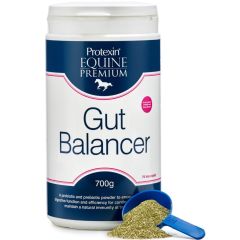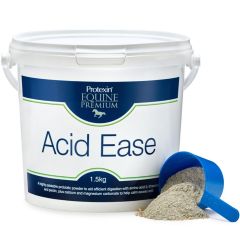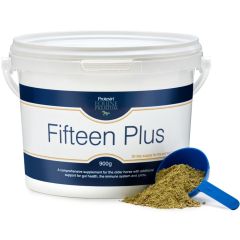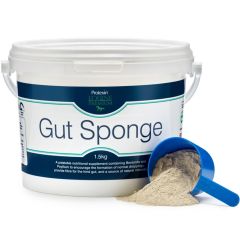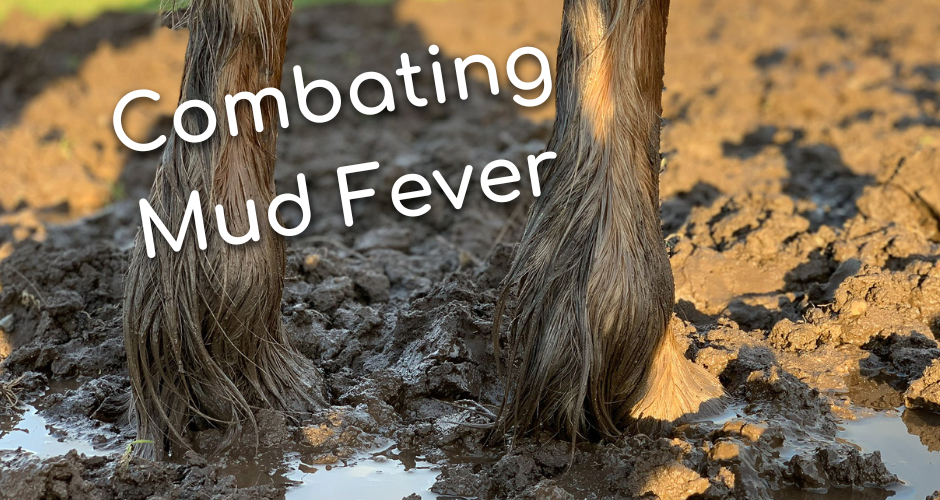12 Tips for Supporting Gut Health
When it comes to your horse's gut, who better to ask than, Protexin Equine Premium? Take a look at 12 tips to help promote good gut health in your horse.
The horse's digestive system is a complex one, responsible for breaking down food, absorbing nutrients, and eliminating waste. Health problems can arise if the gut is in poor health, such as weight loss, loose droppings and colic. But, don't worry, here are 12 tips to help keep your horse's gut in good condition:
1 - Feed fibre
Fibre has many roles within the digestive system with it's primary benefit being within the hindgut. Here microorganisms, such as bacteria, use the fibre to generate energy and essential nutrients such as B-vitamins. The growth of harmful bacterial species is inhibited by friendly fibre-digesting bacteria and the breakdown of fibre helps generate heat, keeping your horse warm.
2 - Reduce stress.
Stress factors within the environment can affect your horse's digestive system as well as the composition and operation of the gut microbiome (a collection of micro-organisms living in the gut), along with the overall efficiency of digestion. These stressors can include changes in routine, living conditions, fluctuations in the weather and exposure to new or unsettling situations.
3 - Feed your horse little and often.
Horse's have small stomachs, similar in size to a rugby ball! To aid with the efficiency of digestion, feeds should be given in smaller amounts, more frequently. A large amount of concentrated feed will move through the digestive tract quicker, leaving less time for digestion to occur and the nutrients to be absorbed. Feeds which are too big may also cause digestive upset and contribute to the production of gas.


4 - Maintain a consistent feeding routine.
Bacteria within the gut thrive when a good routine is in place and the environment within the gut remains stable. Abrupt alterations to your horse's daily feeding regime can lead to the decline of the good bacteria within the gut.
5 - Introduce new feeds slowly.
Any alterations to your horse's diet should be done gradually in order to allow the microbiome within your horse's gut to adapt. If you introduce new feeds or supplements too quickly, the changes within the environment may lead to a decline in healthy gut bacteria.
6- Feed to your horse's needs.
Promote your horse's overall health by feeding to their individual needs. Take into consideration the size, workload and temperament of your horse. It is ideal to weigh your horse's forage and feed a concentrate feed at the correct rate for your horse. Obesity within horse's can lead to gut problems, digestive upset and other health concerns such as laminitis. If you are unsure of how much feed your horse needs, many feed companies have qualified nutritionists who you can contact to discuss your horse's individual requirements.
7 - Provide high quality forage.
Consider the impact your forage has on your horse's health. Dusty, mouldy, and rough forage with long, hard stems can all pose health risks when it comes to supporting the digestive tract. If your hay does contain a lot of sticks, you can feed a bit extra to allow your horse to work around the bits they don't want.
8 - Always provide access to fresh water.
Help prevent dehydration by always allowing access to fresh, clean water. Encourage your horse to drink plenty of water, especially after exercise. This aids the digestive system by helping to keep it moving smoothly. Dehydration can lead to an impaction, which can pose serious health risks. If your horse isn't likely to drink in some situations, for example when travelling, you can soak fibre mash based feeds to help increase the water intake, the highly digestible fibre in these feeds helps by releasing water readily in the digestive tract.
9 - Carry out regular dental checks.
In order for proper digestion to occur, horses must first chew and breakdown their food in their mouth. If your horse is suffering from any dental problems or loose teeth, this can have a huge impact on how well food is broken down and compromise gastric health. Fibre is essential for gut health, therefore, if your horse does suffer from any dental issues, particularly older horses, it is important to provide them with easy to chew, fibre rich foods:
- Soaked hay is softer and easier to chew
- Chopped hay is easier to digest than long strands
- Hay cubes or cobs are ideal for horse's who are unable to chew hay
- Beet pulp is a high fibre feed that can be fed soaked
- Complete feeds are formulated to provide all the nutrients a horse needs, and are often easy to chew or available in a mash


10 - Reduce grains and concentrate feeds where possible.
Excess carbohydrates can lead to obesity and other health problems such as laminitis. Energy dense feeds can overload your horse's digestive system and lead to digestive upset, a diet high in fibre and low in carbohydrates can help to promote good gut health.
11 - Stick to a worming plan.
Parasites can have a significant impact on gut health and the digestive tract. It is important to test for the presence of parasites at regular intervals throughout the year. Faecal egg counts (FEC) are the most popular way to test for a worm burden and saliva tests are used specifically for tapeworm, which cannot be detected in a FEC. Only worming when necessary is a vital way to help prevent resistance in worms and also protect your horse's digestive tract, as the chemicals in wormers will have a detrimental effect on healthy gut microbes. To help reduce the likelihood of a worm burden it is ideal to have good husbandry practices in place.
12 - Feed a gut support supplement.
A supplement containing pre and probiotics can help support the friendly bacteria in your horse's gut and assist general health and well-being. By supporting the bacteria, digestive function and efficiency can be improved.
We hope you found these tips helpful for maintaining good gut health for you horse. Supporting your horse's digestive tract will not only help with the efficiency of digesting feed intake, but will help to prevent health problems from occurring as a result of digestive upset or discomfort. It is important to consult your vet for advice if you think your horse is suffering from any signs of digestive upset, so that the right plan can be put in place for your horse's needs.
- Prepare for fireworks…Bonfire season is upon us and it is essential we take precautionary measures to prepare for fireworks when it comes to our horses, this is to ensure we get through this period safely and with as little stress as possible.
- Clipping made easy with LiverymanClipping is a vital component of your horse's grooming regimen. There are many reasons why we clip our horses, one of the main ones is to improve welfare.
- Combating Mud Fever in Equines: Understanding Symptoms, Causes, and TreatmentsMud fever is a common, non-contagious skin condition among horses, which is caused by bacterial infection in damp and muddy living environments.



